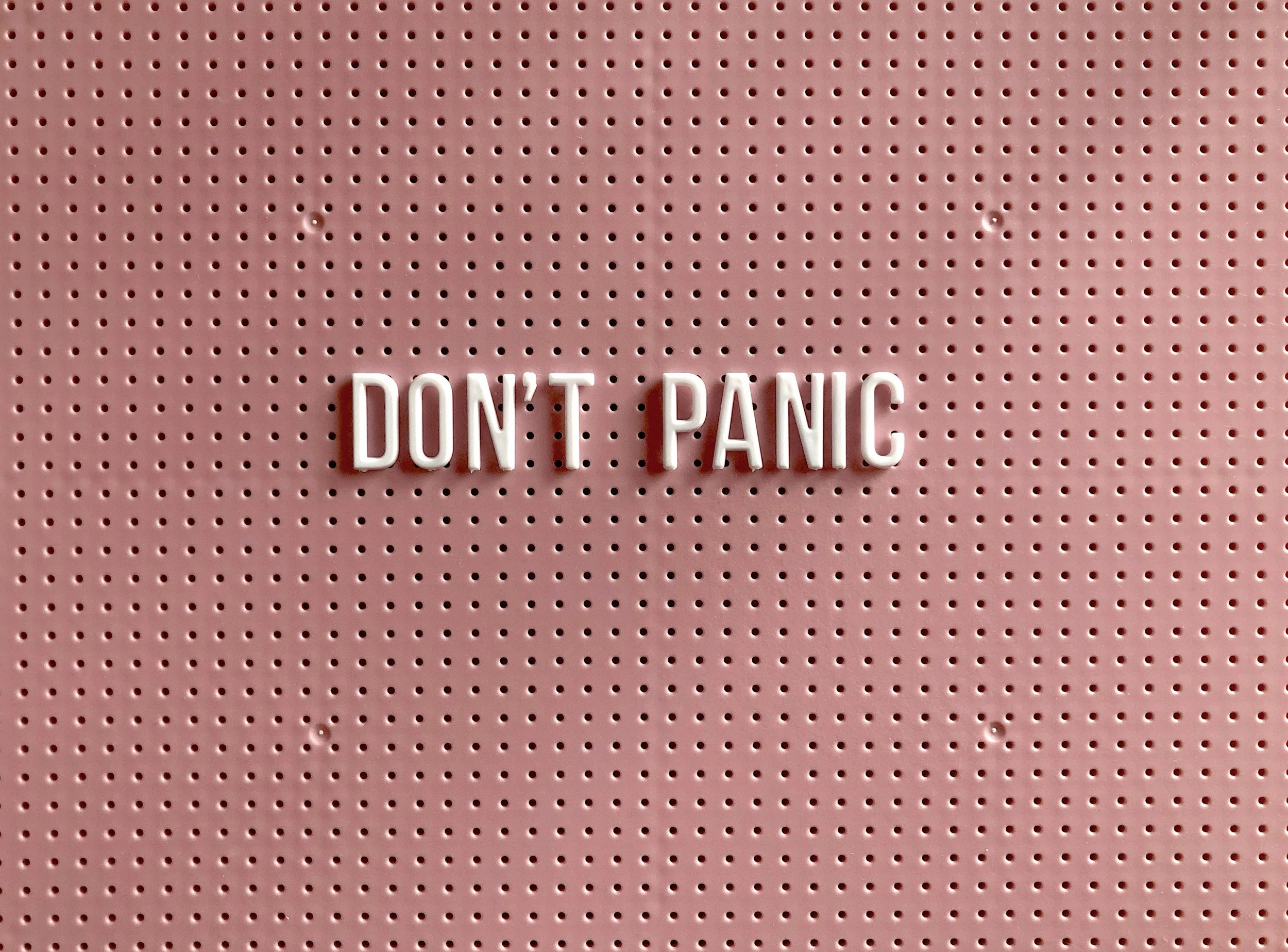What is anxiety and why do I have it?
Anxiety is a complex emotional and physiological response characterised by feelings of unease, apprehension, or worry.
Read on to find out more about anxiety, why it happens and strategies to help you.
What Is Anxiety?
At its most basic, anxiety arises from the body's survival mechanisms. When your body perceives a threat in your environment or relationally, it responds by activating the "fight or flight" sympathetic state. This response kicks off a series of physiological changes, including increased heart rate, rapid breathing, and muscle tension, preparing the body to evade or confront the danger.
So that means it can show up as both a normal reaction to stress and a persistent response that negatively impacts daily functioning. While the stress response is a normal part of how you function as a human, chronic anxiety can be far more debilitating.
Conditions like Generalised Anxiety Disorder (GAD), panic disorder, social anxiety, and phobias can emerge when chronic anxiety — an inability for our stress response to switch off — becomes the norm. This can lead to finding it hard to concentrate, sleep disturbances, and heightened sensitivities to stressors you’d normally cope fine with.
Understanding anxiety requires recognising its link with the nervous system. An nervous system that is stuck in hyper vigilance can cause persistent feelings of anxiety, leading to avoidance behaviours further compounding the problem. Through a somatic approach, it is possible to address and heal these patterns by connecting physical sensations to emotional experiences. This brings greater awareness of what is happening giving us a chance to bring regulation to the nervous system.
What Causes Anxiety?
Anxiety can arise from the complex interplay of biological, psychosocial, and environmental factors. At a biological level, factors such as genetics, neurobiology, and neurochemistry play a significant role. Variations in brain chemistry, particularly concerning neurotransmitters like serotonin and dopamine, can influence mood regulation and anxiety levels. For example, someone with ADHD may be more likely to experience anxiety and anxiety ‘disorders’.
Psychologically, past trauma and conditioning from our caregivers and other adults during childhood can contribute to anxiety. A person may develop anxiety as a response to stressful life events or chronic stress, where the body remains in a heightened state of alertness or hypervigilance. This can conditioning has created well worn neurological pathway, where individuals respond to various stimuli with fear or apprehension.
Environmental factors, such as socio-economic pressures, relationships, and exposure to traumatic experiences, can make feelings of anxiety worse. A high-stress lifestyle, lack of support systems or resources, or ongoing societal, work, or parental pressures can also trigger or worsen anxiety symptoms.
Lastly, the autonomic nervous system, which regulates stress responses, can become dysregulated and inflexible, leading to persistent feelings of anxiety.
Understanding these factors is fundamental for developing effective coping strategies and therapeutic interventions that address the root causes of anxiety.
What About Trauma?
Anxiety and trauma are intricately linked, as experiences of trauma can significantly impact an individual’s mental health, often resulting in anxiety disorders. When a person experiences a traumatic event—such as abuse, accidents, or loss—the immediate response can include heightened feelings of fear, helplessness, and confusion. These responses may become ingrained in the nervous system, held in the body even if the memories have faded, leading to a state of hyperarousal.
In this hyperarousal state, your body remains on high alert, constantly scanning for threats. Research has shown that when a person is in this sustained state of hyperarousal, they see neutral facial expressions as threatening. And can become more tuned into sounds that activate the threat response. This sustained activation of the freeze-flight-fight system can cause chronic anxiety, manifesting in physical symptoms like heart palpitations, muscular tension and pain, joint inflammation, gut issues, and difficulty concentrating.
Trauma distorts your perception of safety and control, leading to an overwhelming sense of unease in everyday situations. You may develop avoidance behaviours, steering clear of reminders of the trauma, which can further reinforce feelings of anxiety and isolation. This is a safety mechanism, a subconscious drive to regain the agency that was taken during the moment of trauma.
A further factor in the anxiety-trauma relationship is the impact of unresolved emotional and psychological distress. Trauma can lead to fragmented or conflicted internal narratives, as seen in Internal Family Systems therapy, where different parts of your identity may struggle to be seen and validation. This internal conflict may exacerbate anxiety symptoms, creating a cycle that is difficult to break without therapeutic intervention.
So you can see that understanding the links between trauma, the nervous system, our early life conditioning, self-regulation skills and anxiety is so so important to develop effective healing strategies. By addressing both the physiological and psychological aspects through somatic approaches, you can begin to restore balance to your nervous system, allowing for the healing of trauma-related and chronic anxiety.
What Can You Do to Ease Anxiety?
As with anything related to the mind where we’ve become conditioned over a long period of time, there are no easy fixes to overcoming anxiety. It isn’t a case of deciding that you’re going to get better, although that helps to start you on your journey.
Overcoming anxiety involves a multi-faceted, self-compassionate approach that addresses both the mind and body. Here are some strategies you can consider:
Understand Your Anxiety: Begin by identifying the triggers and patterns associated with your anxiety. Journaling can help you articulate your thoughts and feelings and spot patterns of reaction, activation, and behaviour, providing clarity on what triggers your anxiety.
Practice Mindfulness: As you know if you’ve read a few of my articles, I advocate for mindfulness techniques such as deep breathing, meditation, or body scans. These practices can anchor you in the present moment and reduce the overwhelming feelings of anxiety.
Somatic Experiencing: Engage in somatic practices that focus on body awareness. Notice areas of tension or discomfort in your body and gently explore these sensations. This can help release stored trauma and anxiety held in the body. Although go gently with this one and if you are worried about surfacing traumatic experiences you’re not ready to look at, work with a therapist. You can find more about the support I offer here.
Movement: Engage in regular physical activity. Movement helps release endorphins, reduces stress, and can significantly enhance your mood. Activities like yoga, walking, or dancing can be particularly beneficial because they work directly with the cerebellum to build it up, which enhances our ability to cope with difficult emotions.
Seek Support: Consider talking with a therapist who employs a somatic approach or Internal Family Systems therapy. Professional guidance can provide tools and insights tailored to your specific experiences and needs.
Establish Healthy Routines: Develop a daily routine that incorporates self-care practices such as adequate sleep, a balanced diet, and hydration. A stable routine can create a sense of safety and predictability. If this feels hard to start, start small. Just one tiny change can have a big impact, and demonstrates to you that change is possible. I also say resource up. What I mean by this is use whatever scaffolding you need to support yourself, such as using fiddle toys or calming essential oils when you go out. Or learn self-calming hand positions for when anxiety creeps up on you. You may have been told to face your fears, but if you don’t feel ready, exposure like this can make anxiety worse. So do what feels right to you.
Limit Stimulants: Reduce the intake of caffeine, nicotine, and other stimulants that can exacerbate anxiety symptoms. Opt for calming herbal teas or other relaxation techniques instead. I also recommend avoiding alcohol as this is a depressant and can significantly affect your mood and coping capacity.
Connect with Others: Making connections with supportive friends or family members is really important. Sharing your experiences and feelings can create a sense of belonging and reduce feelings of isolation. Or you may consider joining a group such as my Harmony Healing Women’s Group.
Set Boundaries: Learn to say no to overwhelming commitments that may exacerbate anxiety. Protecting your time and energy can help you feel more centred and give you a sense of control.
Practice Self-Compassion: Be kind to yourself during your healing journey. Acknowledge that anxiety is a common experience and that it's okay to seek help and take time to heal. It’s also okay to feel and have big feelings. Try not to judge yourself or speak harshly to yourself if you are struggling.
Implementing these strategies consistently can lead to gradual improvements in your anxiety levels. Remember, healing takes time, and being patient with yourself is essential.
If you would like a free consultation with me to talk about your concerns in more depth, drop me an email at claire@harmonyhealingservices.co.uk I can recommend which of my services would be right for you at this particular time to suit your needs.
Taking the first step is usually the hardest part. So well done if you are considering reaching out and are still finding this hard. That’s okay. Take your time.


